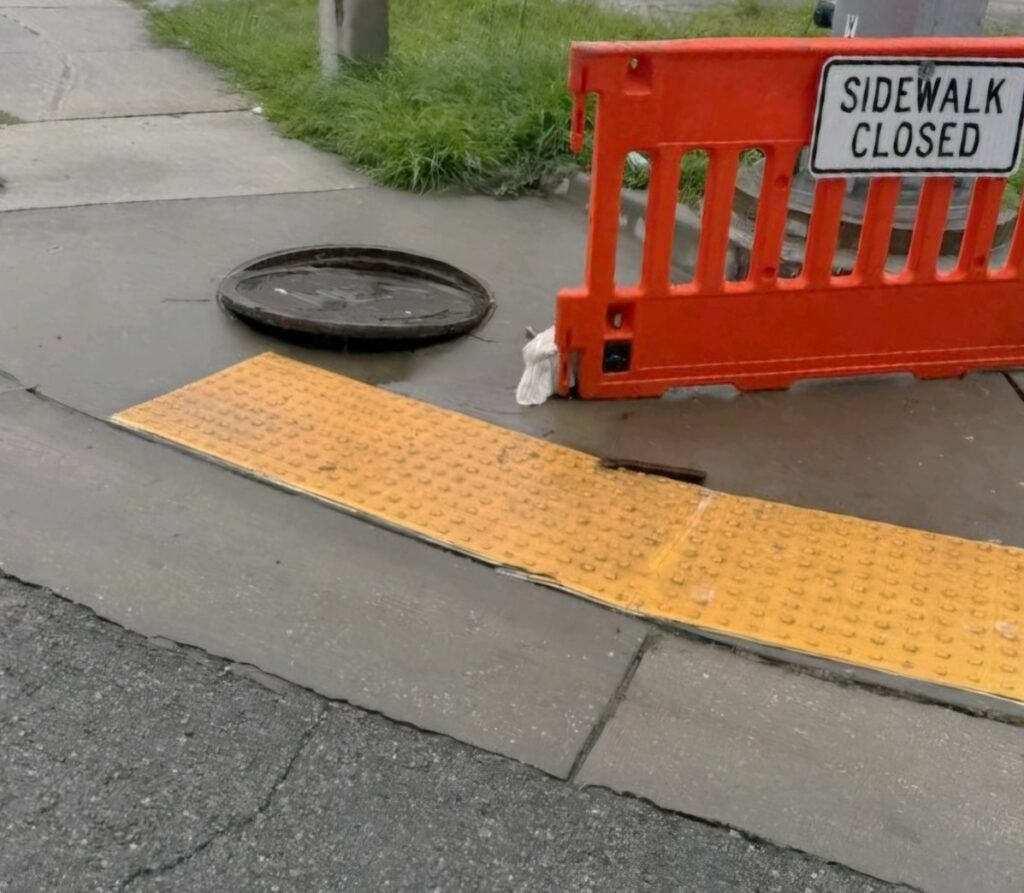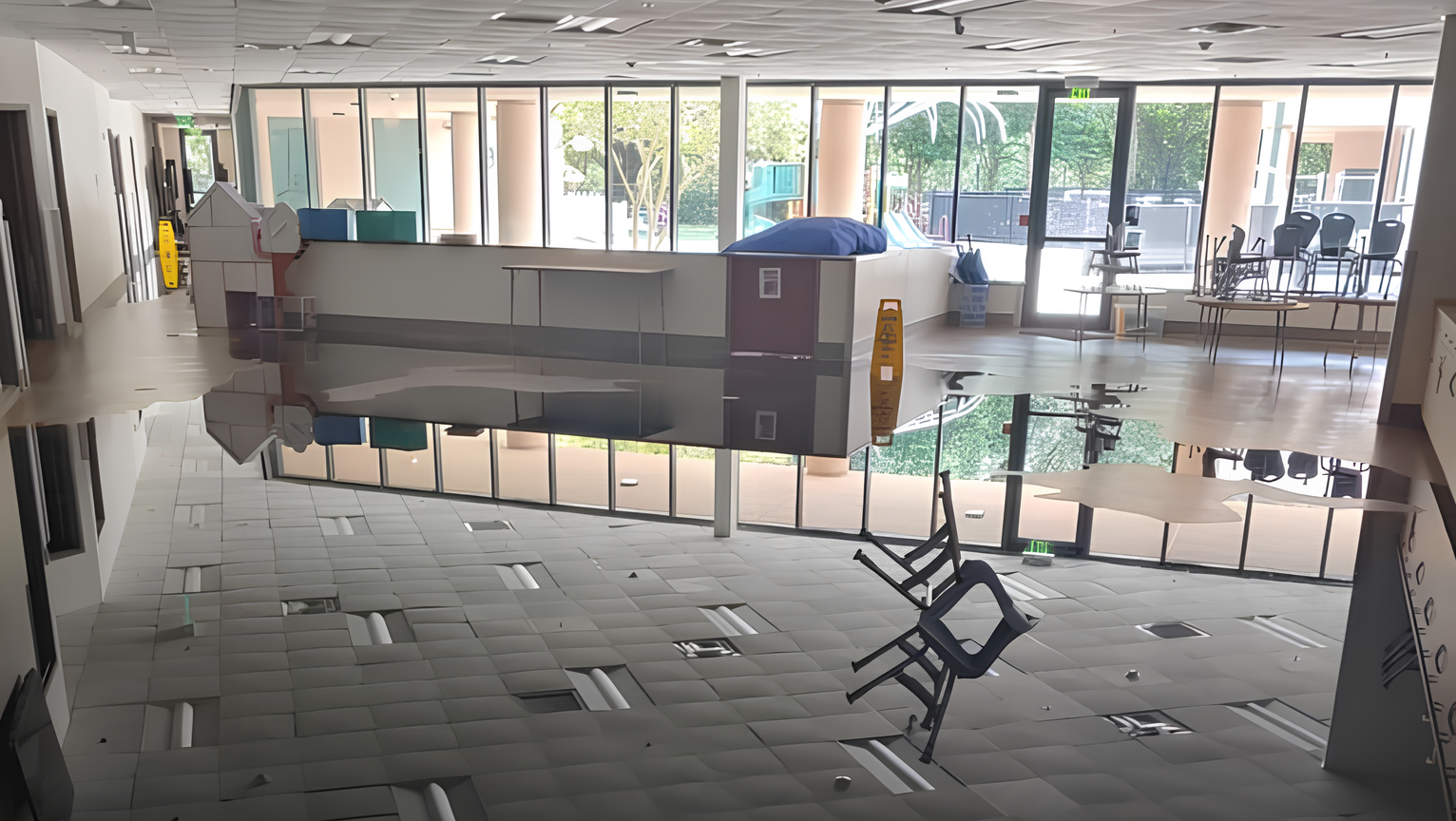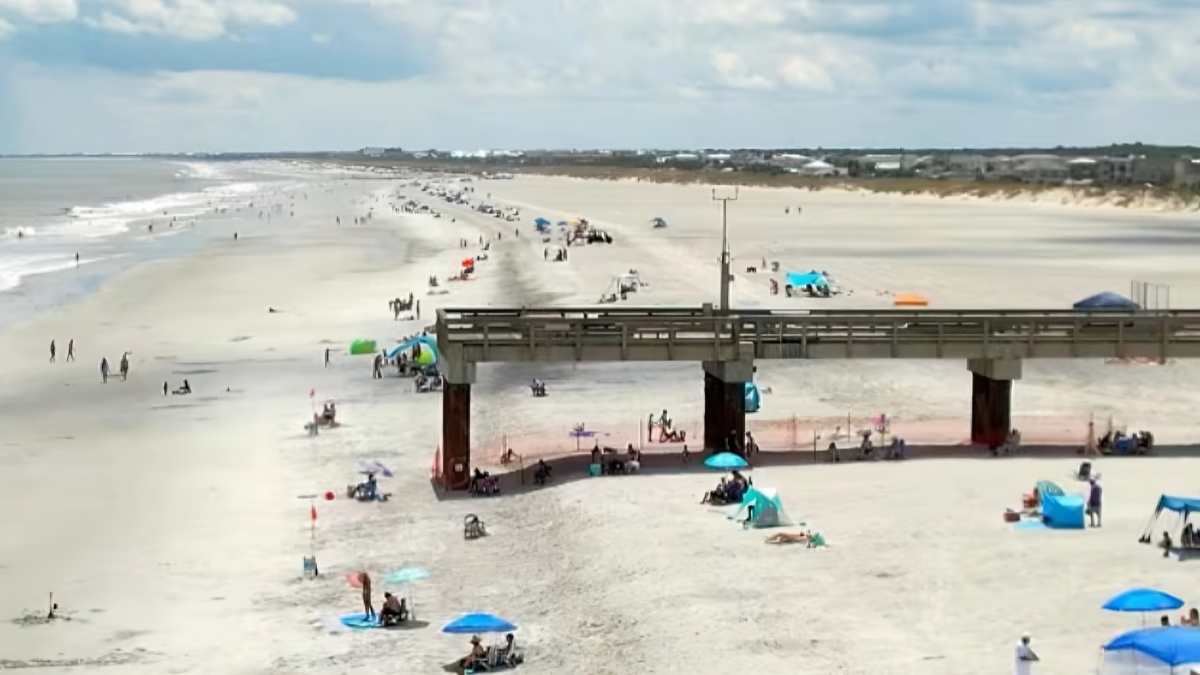September’s storms caused a dozen separate JEA sanitary sewer overflows that ranged from 400 gallons to about 10,000 gallons, the utility reports.
Simply put, the city’s wastewater system could not handle the 10 to 15 inches of rain, and upwards of 20 inches of rain that fell in some places, between Sept. 4 and 13, JEA spokesperson Karen McAllister says.
Storms were responsible for half of this month’s 25 sewer overflows so far, 21 of them meeting the level for mandatory state reporting. In a typical year, 35 to 40 overflows meet the state reporting threshold, JEA says.
“The sanitary sewer overflow occurs when wastewater overflows from the collection system. In this case, the system, with all of the water, was inundated and overwhelmed,” McAllister said, adding that the overflows took effort to clean up.
“There was increased pumping, additional workforce time to manage the event during the 10-day period,” she said. “But in terms of cost, we do plan and forecast for extreme weather events, whether it’s a hurricane or extreme rainfall like this that impacts our system.”
Even before the early September rains, 13 of the St. Johns River Water Management District’s 18 counties, which include Northeast Florida, reported rainfall totals above their monthly averages in August, with nearly 14 inches in Nassau County alone last month.
Then came the heavy rains that began late Sept. 3 in the Jacksonville area, with much of it concentrated in the first couple of days over Downtown Jax and southward along the I-95 corridor, the National Weather Service reported. That created flooding along parts of San Marco Boulevard and Old St. Augustine Road as city crews worked to clear storm drains and install temporary pumps.
Sewer systems saw a 58% increase in flow over the 80-million-gallon average daily flow into JEA’s wastewater treatment system between Sept. 3 to 14, McAllister said.
These dozen overflows were attributed purely to the recent wet weather:
- Pittman Drive North on Sept. 4, with an estimated 500 gallons released.
- Clemson Road on Sept. 4, with an estimated 500 gallons released.
- The Jacksonville School for Autism, 9000 Southside Blvd. on Sept. 4, with an estimated 500 gallons released.
- Buckman Street on September 5, with 10,000 gallons released.
- San Jose Boulevard on Sept. 4, with an estimated 500 gallons released. JEA crews cleaned sewage on the road and driveway.
- West 16th Street on Sept. 5, with an estimated 500 gallons released.
- Woolman Avenue on Sept. 6, with an estimated 2,000 gallons released.
- Camden Road on Sept. 6, with an estimated 2,500 gallons released.
- The Woods Drive East on Sept. 8, with an estimated 300 gallons released.
- Valencia Road on Sept. 9, with an estimated 500 gallons released.
- Sonora Drive North on Sept. 11, with an estimated 1,000 gallons released.
- Newberry Road on Sept. 12, with an estimated 1,500 gallons released.
There is no concern that the sewer overflow will mix with the city’s drinking water system, McAllister says.
“The drinking water distributed to our homes comes from a completely separate piping system than the wastewater that is collected from your home,” she says. “Our treatment facilities for water distribution and wastewater collection are completely separate.”

One way to prevent sanitary sewer overflows is to not tamper with manhole or wastewater covers that are above the pipes, which happens sometimes when people think it will help drain an area.
“Open manholes or cleanout caps contribute to increased daily flow, which stresses the collection system,” McAllister said. “It also presents a safety hazard.”
It’s also illegal to tamper with public infrastructure.
Another way to keep JEA wastewater systems clear is to not dump used cooking oil and grease down the drain because they can congeal and clog the system and cause sewage to back up, McAllister says.







